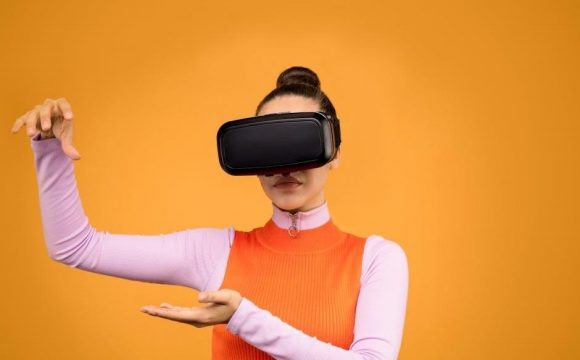Welcome to the 21st Century Guide, your roadmap for navigating the transformative changes shaping our world. This guide explores megatrends, technological advancements, education shifts, and cultural evolution.
1.1 Defining the Scope
The 21st Century Guide focuses on understanding the key drivers of change in today’s rapidly evolving world. It examines the intersection of environmental, technological, and societal shifts, providing insights into how these factors shape our future. The scope includes exploring megatrends like climate change, resource depletion, and deglobalization, while also addressing advancements in technology, education, and cultural evolution. By defining these critical areas, the guide offers a comprehensive framework for navigating the complexities of the modern era. Its purpose is to equip readers with the knowledge needed to adapt to and thrive in a world defined by unprecedented challenges and opportunities.
1.2 Importance in Today’s World
The 21st Century Guide is essential for understanding the complexities of our modern world. It addresses critical challenges like climate change, resource depletion, and societal shifts, offering insights into how these issues impact daily life. By focusing on these key areas, the guide helps individuals and organizations adapt to rapid changes. Its importance lies in providing a roadmap for navigating uncertainty, fostering resilience, and identifying opportunities for growth. In a world defined by interconnected challenges, this guide serves as a vital resource for making informed decisions and shaping a sustainable future. Its relevance ensures that readers are equipped to thrive in a dynamic and evolving global landscape.

Megatrends of the 21st Century
The 21st century is defined by transformative trends like climate change, resource depletion, and deglobalization, reshaping global economies, societies, and ecosystems. These megatrends underscore the need for adaptive strategies to address their far-reaching impacts on humanity and the planet.
2.1 Climate Change
Climate change stands as one of the most critical challenges of the 21st century, driven by rising greenhouse gas emissions and industrial activity. It manifests through increasing global temperatures, more frequent extreme weather events, and disruptions to ecosystems. The consequences are far-reaching, impacting biodiversity, food security, and human health. Coastal regions face heightened risks from sea-level rise, while arid areas suffer from intensified droughts. The urgency to mitigate climate change has spurred global initiatives, such as the Paris Agreement, aiming to limit warming and transition to renewable energy sources. Adaptation strategies are equally vital, focusing on resilience-building and sustainable practices.addressing this megatrend requires collective action, innovation, and a commitment to safeguarding the planet for future generations.
2.2 Resource Depletion
Resource depletion is a pressing issue in the 21st century, as the world faces dwindling natural resources due to overconsumption and unsustainable practices. Key concerns include water scarcity, deforestation, and the depletion of fossil fuels and minerals. The growing global population and increased industrial demand exacerbate these challenges. Regions reliant on non-renewable resources are particularly vulnerable, leading to geopolitical tensions and economic instability. Water scarcity, for instance, affects agriculture, energy production, and urban supplies, threatening food security and livelihoods. Addressing resource depletion requires innovative solutions, such as renewable energy adoption, circular economy models, and stricter conservation policies. Without urgent action, resource shortages could escalate, undermining global stability and future prosperity.
2.3 Deglobalization
Deglobalization emerged as a significant trend in the 21st century, driven by rising nationalism, trade barriers, and geopolitical tensions. Unlike the previous century’s focus on increasing global interconnectedness, deglobalization reflects a shift toward localized economies and reduced interdependence. This trend is partly a response to economic inequalities, political instability, and concerns over cultural homogenization. Nations are increasingly prioritizing self-sufficiency, leading to reduced international trade and investment. However, deglobalization also poses risks, such as decreased economic efficiency, higher prices for consumers, and potential isolation of developing economies. While it challenges the globalized world order, it also highlights the need for more balanced and equitable international systems. Deglobalization is reshaping how countries approach trade, security, and cultural exchange in the modern era.

Technological Advancements
Technological advancements are revolutionizing industries, driving innovation, and reshaping global connectivity. From AI to biotech, these developments are fostering unprecedented growth and transformation across sectors, balancing progress with ethical challenges.
3.1 Emerging Technologies
Emerging technologies are at the forefront of 21st-century innovation, reshaping industries and daily life. Artificial intelligence, blockchain, and the Internet of Things (IoT) are driving transformative changes. These technologies enable smarter decision-making, enhance efficiency, and create new opportunities across sectors like healthcare, finance, and education. For instance, AI-powered diagnostics improve medical accuracy, while blockchain ensures secure transactions. Biotechnology advancements, such as CRISPR, are revolutionizing genetics and disease treatment. Meanwhile, virtual and augmented realities are redefining entertainment and training. As these technologies evolve, they foster global connectivity and innovation, offering solutions to complex challenges. However, their adoption requires addressing ethical concerns and ensuring equitable access to benefits. The integration of emerging technologies promises a future of unprecedented possibility and progress.
3.2 Artificial Intelligence
Artificial Intelligence (AI) stands as a cornerstone of 21st-century innovation, revolutionizing industries from healthcare to finance. AI-powered systems enhance decision-making, optimize processes, and enable personalized experiences. Advances in natural language processing and machine learning have led to breakthroughs like chatbots, autonomous vehicles, and predictive analytics. AI-driven tools are improving healthcare diagnostics, financial forecasting, and educational platforms. However, ethical concerns such as data privacy, bias, and job displacement must be addressed. As AI evolves, its integration into daily life promises unprecedented efficiency and innovation. By fostering responsible development, society can harness AI’s potential to solve complex global challenges, ensuring a future where technology complements human capabilities. The rise of AI underscores the need for adaptability and ethical frameworks to guide its transformative impact.
3.3 Biotechnology Innovations
Biotechnology innovations are driving significant advancements in healthcare, agriculture, and environmental sustainability. Cutting-edge techniques like CRISPR gene editing and synthetic biology are revolutionizing medical treatments, enabling precise disease targeting and personalized therapies. In agriculture, biotech improves crop yields and resilience, addressing food security challenges. Advances in regenerative medicine and stem cell research hold promise for repairing tissues and organs, offering new hope for chronic conditions. Additionally, biotechnology is tackling environmental issues through biofuels and bioremediation, reducing reliance on fossil fuels and cleaning pollutants. Ethical considerations remain crucial as these technologies evolve. Biotech’s potential to transform industries underscores its importance in shaping a sustainable and healthier future for generations to come.

Education Trends
21st-century education emphasizes collaborative learning, digital literacy, and real-world applications, preparing students for a rapidly evolving global landscape while fostering creativity, critical thinking, and adaptability.
4.1 Collaborative Learning
Collaborative learning is a cornerstone of 21st-century education, emphasizing teamwork, communication, and shared problem-solving. Tools like Google Docs and interactive whiteboards enable real-time collaboration, fostering engagement and creativity. This approach prepares students for a workforce that values synergy and adaptability. By integrating diverse perspectives, collaborative learning nurtures emotional intelligence and cultural awareness, essential in a globalized world. Schools are increasingly adopting platforms that facilitate group projects and peer-to-peer learning, ensuring students develop the interpersonal skills needed for future challenges. This shift from individualized learning to collective problem-solving reflects the evolving demands of a interconnected society.
4.2 Digital Skills
Digital skills are essential for thriving in the 21st century, as technology reshapes industries and daily life. Proficiency in coding, data analysis, and digital communication is critical for future success. The rise of AI and virtual learning platforms underscores the need for adaptability and technical literacy. These skills enable individuals to navigate evolving job markets and engage meaningfully in a hyper-connected world. Educators emphasize the importance of integrating digital tools into curricula to prepare students for challenges ahead. Mastery of digital skills fosters innovation, enhances problem-solving abilities, and ensures competitiveness in a rapidly changing global landscape. As technology advances, staying adept in digital realms becomes imperative for personal and professional growth.
4.3 Future-Driven Leadership
Future-driven leadership is essential for navigating the complexities of the 21st century. Leaders must anticipate trends, foster innovation, and empower others to adapt to rapid changes. This approach emphasizes visionary thinking, agility, and the ability to inspire collaboration. By prioritizing long-term goals and embracing technological advancements, leaders can guide organizations through uncertainty. Cultivating a mindset focused on continuous learning and resilience ensures readiness for unforeseen challenges. Effective leaders also champion diversity and inclusivity, recognizing the value of diverse perspectives in solving global issues. As the world evolves, future-driven leadership becomes a cornerstone for sustainable progress and meaningful impact. It equips individuals and organizations to thrive in a dynamic, interconnected world.

Economic & Cultural Shifts
The 21st century witnesses significant economic and cultural shifts, balancing tradition with innovation. Global interdependence, evolving workforce dynamics, and technological integration reshape industries and societal norms, fostering adaptability and resilience.
5.1 Globalization vs. Deglobalization
The 21st century has seen a tug-of-war between globalization and deglobalization, reshaping economies and cultures. Globalization, driven by trade and technological interconnectedness, has fostered economic interdependence and cultural exchange. However, deglobalization trends, such as protectionism and regionalism, have emerged as responses to inequality, political tensions, and supply chain vulnerabilities. These opposing forces are evident in trade policies, multinational corporations’ strategies, and the rise of regional alliances. While globalization promotes innovation and access to global markets, deglobalization emphasizes self-reliance and national sovereignty. This dynamic balance influences everything from international relations to consumer behavior, creating a complex landscape where nations navigate cooperation and competition simultaneously. Understanding this duality is crucial for grasping the economic and cultural evolution of the 21st century.
5.2 Population and Workforce Changes
The 21st century is marked by significant demographic shifts impacting the global workforce. Population aging in developed nations has led to declining labor force participation, while developing countries face rapid population growth. Immigration has reached historic highs, reshaping workforce diversity and cultural dynamics. The gig economy and remote work have redefined traditional employment structures, offering flexibility but also creating uncertainty. These changes challenge economies to adapt, with a focus on productivity, innovation, and inclusivity. Understanding these workforce trends is essential for addressing future economic and societal needs. The interplay of aging populations, migration, and technological advancements will continue to shape the workforce, driving global economic strategies and cultural evolution.
5.3 Cultural Evolution in Music and Arts
The 21st century has witnessed a profound transformation in music and arts, driven by technological advancements and shifting cultural values. Artists like Billie Eilish and Kendrick Lamar have redefined music genres, blending pop, hip-hop, and electronic elements. Social media platforms have democratized creativity, enabling global access to emerging talent. Visual arts have evolved with digital tools, creating immersive installations and virtual exhibitions. The rise of streaming platforms has reshaped how music is consumed, fostering a vibrant global music scene. This cultural evolution reflects diverse identities and voices, emphasizing inclusivity and innovation. These trends highlight how music and arts continue to mirror and shape societal changes, connecting people across borders and generations. The 21st century’s cultural landscape is dynamic, innovative, and deeply intertwined with technology and global connectivity.







